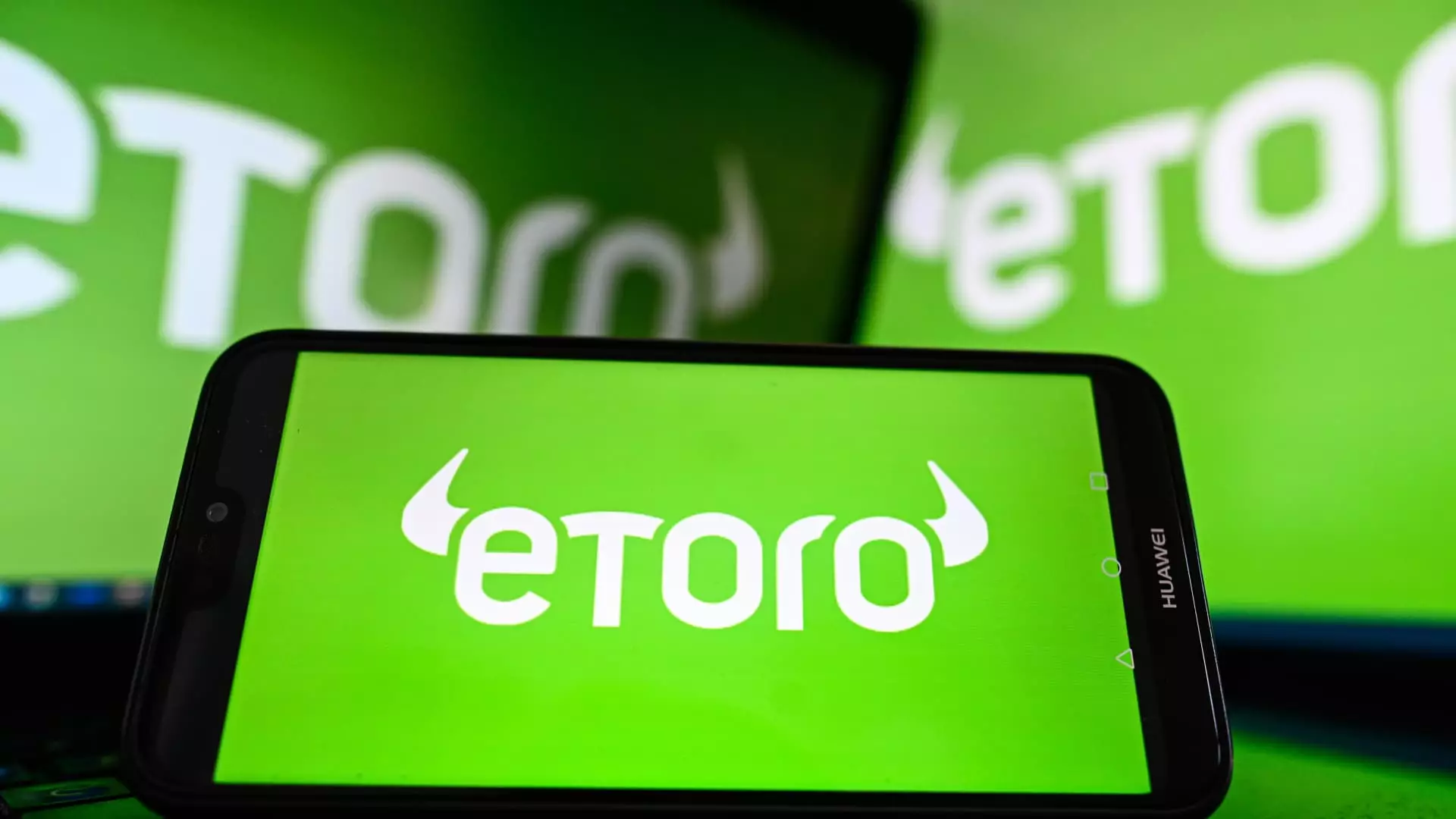The recent announcement of eToro’s initial public offering (IPO) priced at a robust $52 per share undoubtedly has investors buzzing. Positioned as a bold statement from the transformative social trading platform, the offering values the company at approximately $4.2 billion. The substantial capital raised, nearing $310 million through the sale of nearly 6 million shares, seems promising on the surface. Yet, behind the numbers lies an intricate narrative of risk, volatility, and market conditions. The company initially sought to price its shares between $46 and $50, exhibiting a somewhat bullish confidence in an unpredictable landscape.
As eToro embraces this momentous transition, one must question: Is the timing right for such a significant market entry? The echoes of previous IPOs, which faced setbacks due to rising interest rates and inflation, make one wary of drawing lines between sheer ambition and market readiness for another wave of public listings. The landscape is stained with the remnants of uncertainty, and eToro’s decision to come forth seems a precarious gamble in a complicated financial climate that doesn’t shy away from turmoil.
The Rising Tide of Market Participation
In many respects, eToro’s introduction to the Nasdaq—trading under the ticker symbol ETOR—serves as an essential barometer for broader market sentiment. Historically, IPOs have been subjected to ebbs and flows dictated by macroeconomic conditions, and recent trends signal a potential appetite for new offerings. The return of former President Trump to the White House in January stirred speculation about a rebounding IPO market, yet the whispers of tariff concerns and other economic factors loom large over eToro’s prospects.
Indeed, the market environment can be capricious. Just a year prior, both Klarna and StubHub were forced to bring their IPO aspirations to a grinding halt. Their decisions echo eToro’s previous attempts to go public in 2022 through a merger with a SPAC, only to retract amid a significant downturn. This behavior highlights a key flaw in the ambition; eToro’s previous encounter with a hostile market challenges the credibility of its current strategy.
The Crypto Craze and Financial Dynamics
What makes eToro particularly intriguing is its aggressive push into the cryptocurrency arena, a sector that has thrived despite economic upheaval. The 2024 fiscal year saw revenues from crypto assets shooting up over 300%, which now account for a strong 25% of overall trading contributions—an indicator of growing consumer reliance on digital currencies. This pivot towards crypto is not merely clever branding; it is evidence of eToro’s recognition of shifting investor priorities.
However, this move comes wrapped in both opportunity and trepidation. The volatile nature of the crypto market raises existential questions about sustainability and regulation. Can eToro continue to thrive as more traditional financial platforms delve into crypto? Will their competitive edge withstand the inherent risks of such investments? Investors must analyze whether eToro’s resurgence as a market player is an evolution or a desperate grasp for relevance in an oversaturated environment.
Investors and the Institutional Impact
The enthusiasm surrounding eToro’s IPO is also affected by the interest expressed by heavyweight institutional investors, notably BlackRock’s consideration for acquiring a significant stake in the offering. Such backing lends a veneer of credibility; however, it can also serve as a double-edged sword. With institutional players increasingly entering the fray, eToro risks being boxed into a volatile frenzy where retail investors often feel outmatched and overlooked.
This dynamic evokes a critical dialogue about the future of the trading sector and the power dynamics that influence stock valuations. While institutional attention could buoy eToro’s stock price, it raises questions about the platform’s commitment to its core user base amid pressure to cater more to wealthy investors. The marketplace should remain vigilant; the delicate balance between maintaining accessibility and appealing to institutional players could define eToro’s long-term viability.
In the broader context, eToro represents not just a trading platform but a lens through which to scrutinize the evolution of the financial sector. The path ahead is filled with both promise and peril, and whether this IPO is a transformative moment or a misguided venture remains to be seen.

